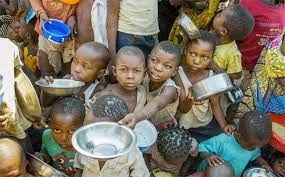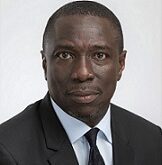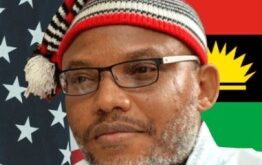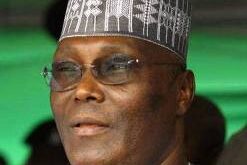By Gesiye Salo Angaye
In 2002, Nigeria’s population was estimated around 216.7 million and a total of 88.4 million, comprising 44.7 million men and 43.7 million women who lived in extreme poverty. Poverty means insufficient income, leading to lack of food, shelter, education, health-care, security, etc. Poverty persists partly because of mass unemployment, underutilization of available natural and human resources, non-diversification of the economy, endemic corruption and inequalities. Therefore, any poverty alleviation programme should aim at engaging the unemployed poor in production activities in secure peaceful environment. Nigeria needs a comprehensive, multisectoral, community-based, bottom-up, peace and prosperity programme (PPP) to alleviate poverty. Peace is freedom from violence and disturbance from peers, partners, family, strangers, and the state. It is the absence of war, conflict or crisis. Peace of mind in relationships means feeling secure, valued and respected by your partner. Prosperity means one has a life worth living with enough income earned justly, good health, education, security, loving relationships, peace of mind and genuine happiness. Prosperity (peace) is difficult to attain without peace (prosperity). So peace and prosperity are intricately interwoven Every community knows it’s poor and needs no computer programmes to identify same. So the targeted beneficiaries or participants within and outside the community are to register for the programme at home. The community/home registration policy is aimed at proper identification of the poor, reverse rural/urban migration, decongest the urban centres, combat crime and improve security and living conditions in both the urban and rural areas.
The peace and prosperity programme is not a welfare programme to transfer free cash which encourages laziness. It is a workfare project and beneficiaries will work to earn a living. The aims are as follows: To promote entrepreneurship, skills acquisition, employment and wealth generation. To produce enough food for consumption and surplus, for sale. To encourage the spirit of self-help, self-reliance and hard work. To combat criminalities and maintain security and peace. To engender community oriented mindset, sense of belonging, shared responsibilities and cooperation to achieve a common goal of successful, peaceful and prosperous living. To improve public facilities and services such as power and water supply, health, education, roads, etc. To reduce rural-urban migration, reduce urban congestion and enhance rural development.
FUNDING
The programme is to be funded jointly by the community, local, state and federal governments, development partners, NGOs, bilateral and multilateral organisations, etc. Communities provide land, labour, local raw materials, security, etc. The federal Government could establish peace and prosperity fund (PPF) like the Ecological fund for the programme. Lands for the programme are to be provided by the various compounds and sections of the community with or without minimal compensation. The traditional land owners would be more willing to co-operate with the realization that the lands are to provide food and employment for their own sons and daughters. There could be collective and/or individual farm plots. Participants must produce enough food for their own consumption and surplus, for sale.
There should be adequate and timely supply of farm inputs and implements such as improved seeds, pesticides, animal feeds, farm machinery to reduce the drudgery of agriculture.
Government needs to improve considerably public facilities and services such as water and power supply, sanitation, roads, health, education, low-cost houses, etc. for participants and the community to enjoy.
Beneficiaries/participants are to receive monthly stipends determined by management and this would vary from community to community. However, it is not a permanent employment and people must leave at the end of the programme.
States and communities should specialize, according to their comparative advantage and make the best use of available natural and human resources. For instance, Bayelsa State is rich in natural resources which include mineral deposits (crude oil and natural gas); forest resources (mangrove timber, iroko, mahogamy and abura); cash/tree crops(oil palm, raphia palm, ogbono, rubber, coconut); food crops(cassava, plantain, bananas, rice, yams, cocoyams, sugarcane, vegetables and fruits); sand, gravel and clay; marine and freshwater fisheries resources. Therefore, in addition to massive food production, participants can engage in small and medium sized fish, cassava, plantain, banana, rice, timber, palm oil and kennel processing plants or mills; palm wine and gin distilleries; boat and canoe building, snail culturing and plastic industry. Soft loans could be given to interested participants to engage in business ventures.
The organization structure and modus operandi of the programme would vary from community to community, depending on available facilities and services. It should be simple and flexible. It does not require the building of huge administrative halls, offices and houses to accommodate participants who would be living in homes of family members, relations and friends. Some meetings and activities can hold in palaces, town halls, school buildings, underutilized houses of the rich in the villages, etc.In pre-colonial Nigeria, the emirates, kingdoms and states were governed or ruled by Emirs, Kings, Obas, Obis, Ezes, Obongs, Amayanabos, etc. Traditional rulers today are still highly respected in many communities, and have considerable political and economic influence. Traditional rulers know the poor in their domains and are supposed to cater for the needs of their subjects. Therefore, capable and non-controversial traditional rulers and chiefs with their community development committees are to manage and control the programme.
Traditional rulers are given important development roles to play in the democratic structure. It is a bottom-up, community-owned/based programme anchored securely in the community. It is labour intensive as against other grandiose, expensive capital intensive programmes that gulp all the budget with nothing left to alleviate poverty. Proper and open identification and selection of beneficiaries as against the secret selection in closed offices. The security threat posed by the restive unemployed poor is arrested to maintain peace and security in the communities. Enough food would be produced to feed the hungry, angry man. With garri and soup; yams, beans, rice and stew. The creation of quick jobs and incomes to reduce hopelessness and poverty. It is a multi-dimensional and multi-sectorial approach Encourages hard work as participants would work to earn a living, unlike free cash transfers which encourages laziness.
The Federal Government said it would commence the payment of N25,000 monthly to 15 million households for three months from October to December, 2023. The scheme now rechristened the ‘’Renewed hope conditional cash transfer for 15 million households’’ would get to 62 million Nigerians living in extreme poverty. How are we sure we may not be unwittingly transferring cash in the cites to even some ‘Boko Haram’ fighters and thugs of politicians to buy more arms to buy more arms and ammunition to harm us. A nation of lazy people would not prosper and we should not encourage laziness. Let the genuinely able bodied, unemployed poor go home to be properly identified and registered for the peace and prosperity programme, work and earn monthly stipends. Welfare free cash transfer are for the disabled, destitute, needy, and elderly people. The community-owned/based, bottom-up, labour intensive, inexpensive, multi-dimensional, multi-sectorial, industrious, work-to-earn and genuine beneficiaries programme, if properly implemented, would enhance security, peace and prosperity to reduce poverty in Nigeria.
… Professor Gesiye Salo Angaye sent in this piece from Yenagoa, Bayelsa State
 PH Mundial – Port Harcourt Online Newspaper News Across The Region
PH Mundial – Port Harcourt Online Newspaper News Across The Region





